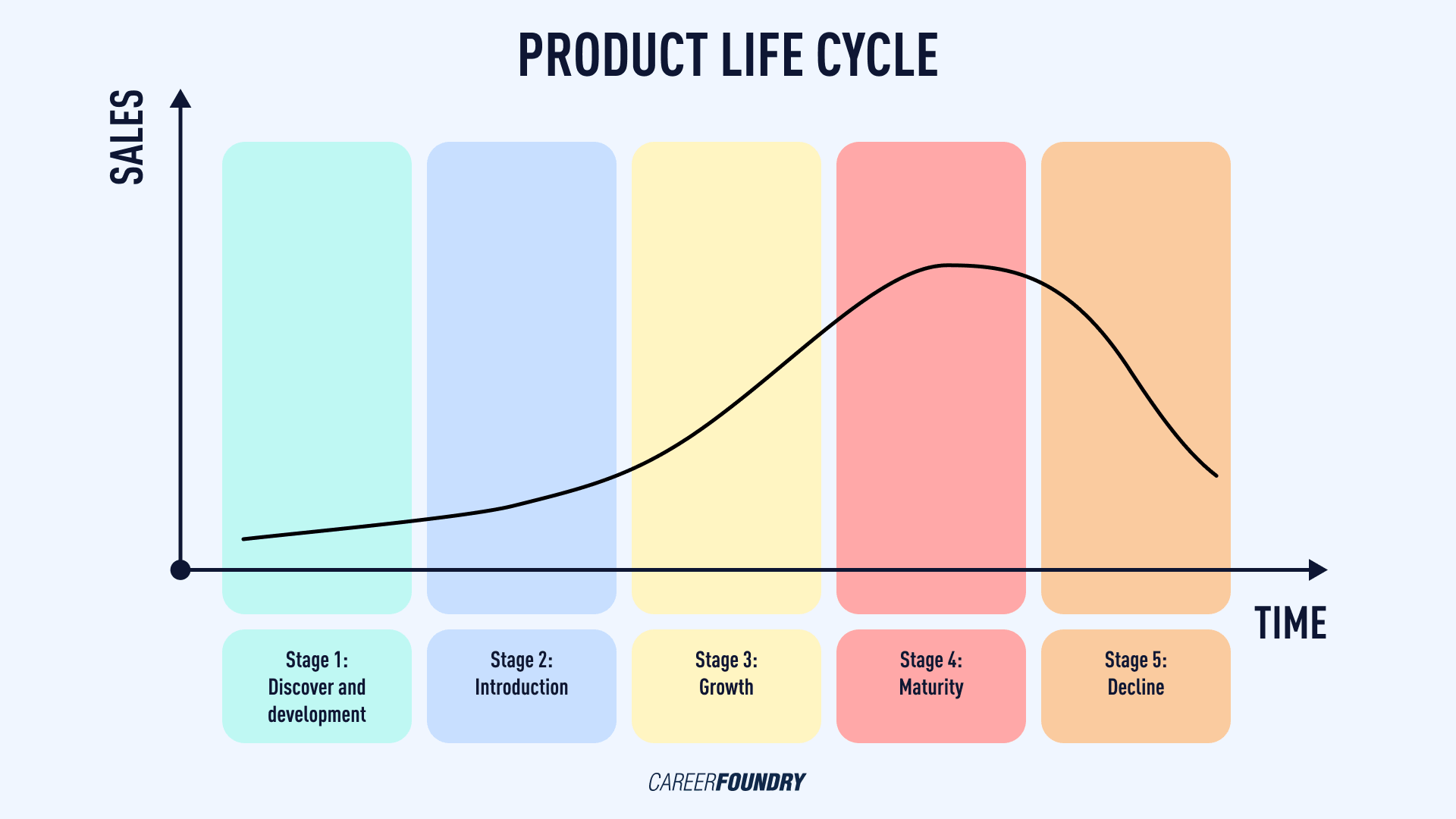Product managers don’t just oversee the development and launch of products—they’re responsible for the whole product lifecycle, from ideas generation to market research and post-launch analysis.
They’re also one of the most important bridges between an organization and its customers. While they might not get the fanfare of sales and marketing teams, it’s up to product managers to balance customers’ needs against those of the company.
With so much responsibility, it’s no wonder product managers are fast becoming the bedrock of many modern companies. But there are essential skills all product managers need to master, and that’s where product management training comes in.
Whether you’re a new product manager, an experienced pro, or simply part of a wider team, product management training can hone your skills and take your career to the next level.
In this post, we’ll explore everything you need to know about the different product management training options. We’ll cover:
- Who benefits from product management training?
- Types of product management training
- How to find the best product management training for you: Step-by-step guide
- Five of the best product management training resources
- Final thoughts
Ready? Then let’s dive in.
1. Who benefits from product management training?
With the advent of digital technologies, the way products are created, distributed, and consumed has changed dramatically.
Today’s marketplace is much more competitive, with an ever-increasing number of product providers vying for consumers’ attention. Think about the products you use daily—an app for your banking, a portal to book medical appointments online, not to mention all the other apps and websites you probably use.
The knock-on effect is that product offerings have become increasingly sophisticated. While this is great for consumers—more choice—it’s created a pressing need for new skills and knowledge to manage products effectively.
That’s why product management training doesn’t just benefit product managers (and aspiring product managers) but anyone who plays a minor role in planning, designing, developing, or selling products.
Product development requires input from project managers, product designers, web developers, marketers, sales teams, and many other disciplines. That’s why product management training is increasingly a must-have.
To ensure you have a synchronized team where everyone understands their role—be it big or small—product management training can help.
2. Types of product management training
As explored in the first section, product management training isn’t just for product managers. It’s useful for anyone involved in the product development process. From full-service product manager training programs to targeted skills tutorials, let’s explore some of the different options.
Full-service product management training programs
The best product management training programs will cover all the necessary practical product management skills and knowledge you need to run an end-to-end project.
These types of programs are typically hands-on. They’ll offer plenty of opportunities to put theory into practice and are usually supported by expert trainers and industry professionals.
In terms of content, full-service programs typically cover topics including:
- Product strategy: Developing and executing product strategies that align with your organization’s business goals.
- Product planning: Understanding product roadmaps/release schedules and how to create them.
- Product development: Managing the entire product development process, from ideation through design, development, testing, debugging, and launch
- Product launch and marketing strategies: Using thorough market research to ensure solid product positioning while developing and executing effective product marketing strategies.
- Customer experience: Assessing and improving the customer experience, using feedback to inform a product’s future releases.
- Analytics: Supporting the customer experience with empirical data. This can help highlight problems and inform decision-making about the future direction of your product or wider strategy.
Targeted skills tutorials for non-product managers
For those already familiar with the basics of product management or whose role only requires involvement at certain stages of the life cycle, developing some more targeted skills can help. This is where individual skills tutorials come in.
While any full-service product management training program will include these, you’ll find shorter tutorials available to help train them too. For instance, you might want to learn about:
Strategic thinking
This is all about thinking ahead and planning for the future—a valuable skill, no matter what role you play in the product life cycle.
Whether you’re a developer, digital marketer, or project manager, you’ll need to understand where the product is going and how to get there.
Market analysis
While marketing teams are usually adept at market research, non-marketing team members require this skill, too.
Upskilling other groups to be autonomous in market analysis benefits everyone, from product designers to developers. Understanding what the market is doing will help them create a unique offering. Devolving this skill can also alleviate the pressure on marketing and insights teams.
Product life cycle
 While all product team members need knowledge of the product life cycle, those who are heavily involved will absorb much of this information on the job.
While all product team members need knowledge of the product life cycle, those who are heavily involved will absorb much of this information on the job.
One group that often benefits from some specific training on the product life cycle is sales teams. Often entering the process after product launch, sales teams don’t always have oversight of the whole product lifecycle.
This can result in issues like overpromising to customers. Training in this area can mitigate this issue while helping with post-launch support, where sales personnel typically play a central role.
General project management
Every discipline feeding into product development can benefit from project management expertise.
Whether you’re a developer managing your own time, or a design lead supporting a team, project management expertise is beneficial, whatever level you’re working at. Popular project management approaches used in software development include PRINCE2, Scrum, and Agile.
Less formal training options
If you’re new to product management, you might not be ready to dive in with a fully comprehensive course or even just a targeted tutorial.
If you’re still exploring the topic, why not check out some product management blogs, books, and podcasts first? These offer a great way to dip your toe in before committing to a longer course.
3. How to find the best product management training for you: Step-by-step guide
Now that we’ve explored what good product management training looks like and who it is for, how can you identify the best product management training? Let’s take a look.
Step One: Assess your own skillset to decide your needs
The first step is to assess your skillset and what you need to learn. As we’ve seen, product management training can cover various topics, from product strategy and development to marketing and sales. You may already have some experience in one or more of these areas, or you may be starting from scratch.
If you’re starting from scratch, consider taking a comprehensive product management course that covers the basics in section 2. Alternatively, if you have experience, why not focus on specific areas you need to learn more about? Ask yourself: what skills will help you to do your job better? Are there any areas of product development where you are less confident?
Be aware that it’s not always easy to identify your own skills gaps. In these cases, consider speaking to a trusted manager or colleague. You can ask them which areas they think you might benefit from some skills training in.
Step Two: What are your resources?
The next step is to consider your resources. While full-service product management training should cover everything you could need to learn, it can also be costly.
Think hard about your budget. If you’re already working in a product team, your employer might foot the bill. This can save you from spending your own money, so it’s worth asking.
Beyond that, it’s not just about how much a course costs. You’ll also need to carefully consider how much time you can commit to learning new skills.
Some courses can be completed in a few weeks, while others may take several months. Do you have the capacity to take on a long training program alongside your job and other responsibilities? You’ll likely have to complete it in the evening and on weekends.
Are you comfortable with that? Or would it be more achievable to target specific product development skills that are more relevant to your role and require less time commitment?
Step Three: What’s your learning style?
People all have preferred ways of learning, and a course that’s right for one person might not work well for another.
For instance, some prefer learning by doing, while others are more comfortable listening or watching prerecorded video tutorials. When narrowing down options it helps to ask: Do you prefer learning in a structured environment with set goals and deadlines? Or do you prefer a more relaxed approach that allows you to explore and learn at your own pace?
Identifying your learning style will help you choose the kind of product management training that suits you best. For example, if you prefer a structured learning environment, you might want to choose an online course with set modules, deadlines, and an end-point assessment.
Meanwhile, if you favor a more relaxed approach, face-to-face workshops that include interaction with other learners might be better.
Step Four: What do you want to come away with?
Finally, you’ll need to identify your goals and objectives.
What do you want to achieve by taking product management training? Do you require knowledge of the basics across the board? Or do you want to develop your skills in a specific area, such as strategy or marketing?
This information will better place you to make an informed decision about which product management course is right for you.
Besides skills and knowledge, you should also ask yourself a practical question… Do you want a certification? A certificate can look great on your resume, helping you stand out when applying for jobs. Not all courses are certified, so you’ll need to check.
Some are accredited by the world’s leading organizations, such as the Association of International Product Marketing and Management (AIPMM).
If certification is important to you, ensure the product management training you’re considering can offer it. You can learn more about how in our step-by-step guide to getting a product management certification.

4. Five of the best product management training resources
Next up, what are some of the best product management training resources available? While there are many out there, here are five options to give you a taste:
1. General Assembly—Product Management Course
Course length: 10 weeks part-time, or 1 week accelerated (full-time).
Format: Online.
Cost: $3,950.
General Assembly’s product management course offers a flexible approach to online study.
Learners can either study part-time for 10 weeks or take an intensive course that covers everything in a single week. As with the other courses on our list, this one aims to teach students the most sought-after product management skills.
Starting with an introduction to the core concepts, you’ll gradually progress through topics like market and customer research, UX design, feature prioritization, and how to manage product health. The instructor-led sessions culminate in a final project that allows you to execute the product management process from end to end.
This is a great practical project to add to your product manager portfolio. General Assembly also offers students access to a network of over 80,000 alumni, which is fantastic for networking or simply seeking support from others in a similar position.
2. CareerFoundry—Product Management Program
Course length: 6 months.
Format: Online with live tutorials
Cost: $6,900
CareerFoundry’s box-fresh Product Management program is a hands-on, certified, project-based program.
The training will take you through the entire product management journey in four phases; research, solution/creation, testing, and iteration.
In this course, you can expect to learn a range of skills, like setting a product vision, developing strategic plans, and creating product roadmaps and prototypes. Emphasizing job readiness, CareerFoundry also focuses on lesser-taught non-technical skills, such as practical problem-solving, project management, and creating ethical products.
Their dual mentorship model also provides learners with real industry expertise, and graduates will come away with a project portfolio to help them apply for jobs. Better yet, the course comes with a job guarantee—no job after six months? Provided you meet certain conditions, you’ll be eligible for your money back.
3. Brainstation—Product Management Course
Course length: 5-10 weeks, depending on the course.
Format: Live online classes, or in-person training at selected locations.
Cost: $3,250
Brainstation puts online/offline flexibility first, giving you the choice of live online classes, or in-person training at locations in London, Toronto, New York, Miami, or Vancouver.
While all training occurs at set times (removing the freedom of learning at your own pace) having live training does give it that interactive edge.
The course requires no prior knowledge and breaks down the product development lifecycle into four modules. These are product exploration and strategy, Agile product development, building and refining products, and go-to-market strategies.
They claim that their instructors have worked at some of the most well-respected companies in the world, including the BBC, Audible, and Amazon. Got more questions? Check out their FAQs!
4. Thinkful—Technical Product Management Bootcamp
Course length: 15-20 hours a week over 6 months.
Format: Online.
Cost: $4,900
Aimed at those who want to become leaders in product management, Thinkful’s Technical Product Management Bootcamp is a 6-month part-time course covering everything you need to know to succeed as a technical product manager.
You’ll learn everything from product-market fit and frameworks for building successful products, to strategy and mapping, UX design and iteration, product management responsibilities, and engineering methodologies and technologies.
The course takes place online but involves several real-world capstone projects to help you put your skills into practice. It also includes one-on-one mentoring, career coaching, and a job guarantee.
5. Product Manager HQ—Certified Product Manager
Course length: 6 hours of content.
Format: Self-paced online.
Cost: $350
For those seeking a whistle-stop tour through the different aspects of product management, it’s only fair to include a more affordable option on our list. Enter the Product Manager HQ certified product manager course.
This self-paced online course comes at a fraction of the cost of many other programs, but it’s also less comprehensive. Nevertheless, it offers a variety of video tutorials, quizzes, project work, and downloadable resources, making it an ideal option if you’re just getting started. It also comes with several templates to help you get off on the right foot.
In reality, this course is more of an introductory program, leading to a variety of more detailed specialist certifications in areas from product writing to product-led growth. If these more targeted courses interest you more, check out the list of available related courses on their site.
Hopefully, this gives you a taste of what is available. To see more options, check out our own list of the best product management courses (free and paid).
5. Final thoughts
So there we have it! Everything you need to know about the best product management training options.
As we’ve learned, product management training isn’t just for product managers—it’s great for anyone working in or with a product development team.
Sitting at the intersection of marketing, development, design—and even more fundamental business functions like finance—product development involves numerous touch points across a business. People in all these roles can therefore benefit from product management expertise.
When choosing the best product management training, consider your needs and objectives, and those of your customers and stakeholders. Once you’ve done that, you’ll be able to reap the benefits of a more product-focused organization.
Why not get started by signing up for this free Product Management for Beginners course? You can also check out the following introductory guides to expand your knowledge:
